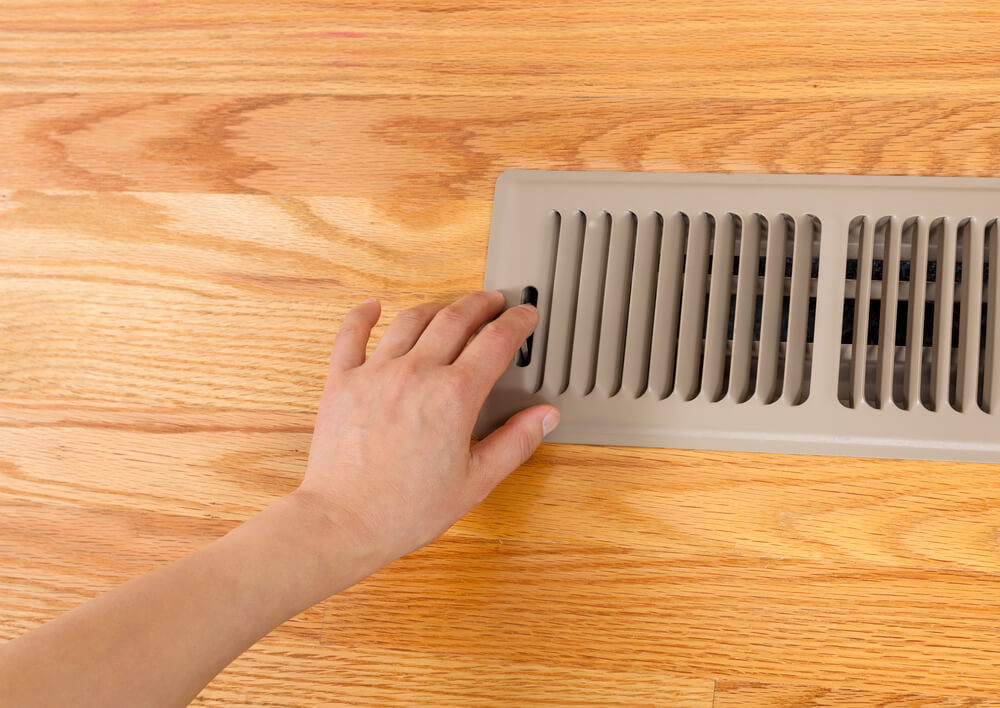There are some common mistakes that are made when it comes to furnaces. These mistakes can cost lots of money in repairs and can often be made with the person being unaware. Let’s bring some of these mistakes to light so that they can be avoided.
What Do the Different Registers Do?
To better understand what the most common furnace mistakes are, it is important to understand what furnace registers are and what they do, starting with the supply register. Some people may have never heard of the term, but a supply register is simply what the name says it is. A supply register is what supplies to warm air to the room. It supplies heat to all the rooms and areas in a house.
A return register pulls the air out of the room. It is the vent that takes in air to send back into the furnace and acts as a circulating device to better heat the home. The supply register and the return register are what make the air circulation effective at warming up the entire room or home.
When these registers get sealed or covered up, it can result in less air circulating, making the home feel much cooler than what it should with a properly working furnace.
Furniture Blocking the Registers Can Impede Air Flow
If there is an issue with proper air flow, then this could be the culprit. Furniture can block air flow. causing issues with the home cooling or heating as it should.
It may be a hassle and somewhat difficult to move the furniture, especially if the home is small, but moving the furniture that is blocking the registers will need to be done. Once the furniture has been moved, then the air flow in the home should increase, making everything comfortable once again.
Information on how to organize furniture for optimum air flow can be found at Better Homes & Gardens.
Only Closing the Supply Registers Can Cause Problems
Homes are more insulated than what they have been in the past. This is important to note because it makes air circulation even more important for proper heating of a home. If a supply registered is closed or covered, this can cause negative air pressure.
Smith Heating & A/C Service, the best HVAC repair in Athens, GA, notes that when closing a supply register, it is important to close the return register also. Remember that if only one is closed, problems with air flow and air pressure can occur, so be sure to cover both the air supply register and the return register.
If there are cracks in any of the return vents, cold air will be pulled into the furnace instead. This can cause the furnace to overwork itself and may not warm the home effectively. The air that will be supplied will not be warm enough and the air circulation will not be strong enough to make the room comfortably warm.
Not Sealing Up Duct Work Results in Leaks When Registers Are Closed
If registers are being closed, then the duct work should be sealed up efficiently. A common mistake is closing the register without sealing up the duct work and in turn leaving leaks in the system of duct work. It is a well-known fact that gaps or tears that leak air from the duct work can cause issues and waste warm air.
When a register is closed off, then the duct work will build up even more pressure inside of it. This can cause those leaks or gaps to become even worse. One sure sign is a lack of air flow and not enough warm air into the home or rooms.
This YouTube video gives more information on how to seal leaks and gaps in duct work to prevent further issues. However, consulting a professional is recommended.
Closing More Than 60% of the Registers Can Cause Damage
Another common mistake is that more registers will be closed off than there should be. Of all the registers in the home, no more than 60% should be closed off. To properly heat an entire home, the registers have to be opened. Now, not all of the registers need to be opened. Just do not close more than 60% of them.
The furnace has to be able to receive enough air to produce proper combustion. If too many register are closed, there will not be enough to evenly put out all of the hot air.
Here are some of the problems that can occur when more than 60% of registers are closed off:
- Overheating of the furnace
- The furnace operating at a high level constantly
- Damage to the furnace
- Costly repairs
- A shorter lifespan for the furnace, resulting in the need for a replacement sooner
More information on why not to close off furnace registers can be found at Energy Vanguard.

